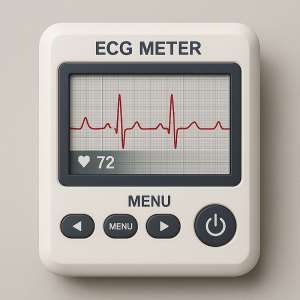
Power That Counts
In a nation where electricity powers both dreams and development, the simple act of measuring consumption has become a symbol of systemic failure or success. Ghana’s Electricity Company (ECG), entrusted with one of the most vital utilities, sits at the crux of national transformation. Yet, it continues to battle a paradox: generating power yet struggling to accurately bill for its usage.
As Ghana pivots toward sustainable energy and digital governance, the metering ecosystem—especially the transition to smart ECG meters—requires urgent and deliberate reform. This is not just about plugging revenue holes; it’s about restoring faith in the system, empowering consumers, and reimagining the role of technology in service delivery.
“Accountability is not powered by electricity alone—it is powered by data, discipline, and deliberate leadership.” – Bismarck Kwesi Davis
The Challenge: Meters That Don’t Add Up
Despite laudable efforts to modernize, ECG still grapples with three metering crises:
1. Unmetered Connections and Billing Gaps: Thousands of households remain without meters, relying on estimated bills that often spark public outrage. This erodes trust and fosters illegal connections.
2. Faulty and Obsolete Meters: Many existing meters are outdated or malfunctioning, leading to billing inaccuracies and customer frustration.
3. Delayed Installations and Bureaucracy: Acquiring a meter can take weeks or even months, especially in peri-urban areas, due to logistical bottlenecks and administrative inefficiencies.
The result? An estimated 30% in power losses, comprising both technical and commercial leakages (Energy Commission, 2023).
Global Models: Lessons in Precision
Countries like Kenya, India, and South Africa have made significant strides in energy metering through:
Widespread Deployment of Smart Prepaid Meters: Enabling remote monitoring, automated disconnection for non-payment, and consumption control. Private Sector Partnerships: Outsourcing meter installation and maintenance to licensed third parties, improving speed and accountability. Data-Driven Energy Audits: Integrating AI and IoT platforms to monitor consumption patterns and detect fraud. Ghana can localize these models, particularly Kenya’s KPLC system, which uses mobile money platforms to enable seamless prepaid electricity purchases and reduce commercial losses.
Strategic Policy Reset: Rewiring ECG’s Metering System
To recalibrate the ECG metering landscape, the following actions are critical:
1. Launch a Nationwide Smart Meter Audit
A comprehensive audit of all installed meters—categorized by age, location, and functionality—will establish a credible baseline for reform.
2. Adopt a “One Home, One Meter” Policy
Modeled after the “One District, One Factory” framework, this ensures every household is legally and accurately metered, regardless of location or income level.
3. Create a Metering Service Division (MSD) within ECG
This unit would specialize in installations, maintenance, and smart diagnostics—backed by AI tools for early fault detection and usage analytics.
4. Public-Private Metering Consortia
Encourage local tech startups to co-develop durable, tamper-proof smart meters that meet Ghana’s climatic and usage realities. Regulatory oversight must ensure quality assurance and consumer protection.
5. Digital Transparency Portals
Empower consumers to monitor real-time usage and transaction histories through mobile apps and SMS platforms, increasing public trust and payment compliance.
6. Decentralize Meter Requests
Allow district-level ECG offices to process and dispatch meters without waiting for Accra’s head office, speeding up installations in underserved regions.
Conclusion:
Recalibrating Power Accountability Through Smart ECG Metering
The future of Ghana’s energy reliability hinges not merely on the generation of power, but on the precision of its consumption and the transparency of its billing. ECG smart meters are not just technological tools—they are guardians of national energy discipline. When efficiently deployed, they create a paradigm of accountability, curb illegal connections, minimize technical losses, and fortify ECG’s revenue base. Yet, their full potential is curtailed by poor public education, erratic deployments, and systemic inefficiencies.
To truly reset Ghana’s power narrative, ECG must lead a new metering revolution—backed by real-time data analytics, seamless customer service, and bold public-private metering partnerships. With robust cybersecurity protocols, region-specific rollout plans, and decentralized troubleshooting systems, ECG can transform smart meters from mere gadgets into instruments of national economic stability.
“Accountability is not powered by electricity alone—it is powered by data, discipline, and deliberate leadership.” – Bismarck Kwesi Davis
Let this be the moment Ghana stops estimating and starts measuring—accurately, transparently, and consistently.
References
Energy Commission of Ghana. (2023). Power Losses and Distribution Challenges in Ghana. Accra: ECG Publications.
Kenya Power and Lighting Company (KPLC). (2022). Smart Metering Success and Integration with Mobile Money. Nairobi: KPLC Report.
South Africa Department of Energy. (2021). National Smart Grid Strategy. Pretoria.


